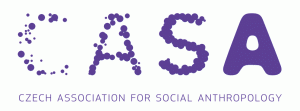4th CASA Conference – Susanna Trnka


4th Biennial Conference of the Czech
Association for Social Anthropology (CASA)
AMBIGUITY
Reclaiming the Ambiguity of Time: Illness and Healing, as One Case in Point
Across many advanced liberal societies, a specific mode of reckoning and controlling time has become one of the key strategies for maximizing productivity, self-knowledge, and wellbeing. One of the consequences of this is an ostensible reduction in the variability of temporal perceptions of many facets of contemporary life. With respect to chronic illness, for example, illness and health trajectories are increasingly articulated through the imperatives of self-management programs and evidence-based medicine, both of which link the temporality of coping with illness to the profit-generating ventures of multi-national pharmaceutical companies. The discipline of anthropology has, however, long demonstrated the co-existence of multiple temporalities, highlighting the variability and malleability of understandings and lived experiences of time, as well as modes of temporal reckoning. This presentation focuses on how ethnographic attention to the fluid and sometimes ambiguous nature of the temporalities of illness and healing trajectories, including variable experiences of the self- and the symptom-within-time and the ambiguous pleasures of stepping outside of everyday, social rhythms, can stand as a counterpoint to advanced liberalism’s promotion of subjective forms that are predicated upon an increasingly constricted range of temporal visions. Considering doctors’ and patients’ approaches to asthma in both New Zealand and the Czech Republic, I examine two phenomena: noncompliance, or lack of adherence to preventative medication, among New Zealanders, and the historical institution of spa care in the Czech Republic. Based on these two case studies, I discuss the role that ambiguity plays across a variety of temporal framings of illness and healing; the ways in which highlighting ambiguity can speak back to some of the imperatives of self-management and evidence-based medicine; and more broadly, how foregrounding temporal ambiguities can constitute a form of political critique.
The University of Auckland
Saturday 10AM
Room B (Nr. 116)
First Floor